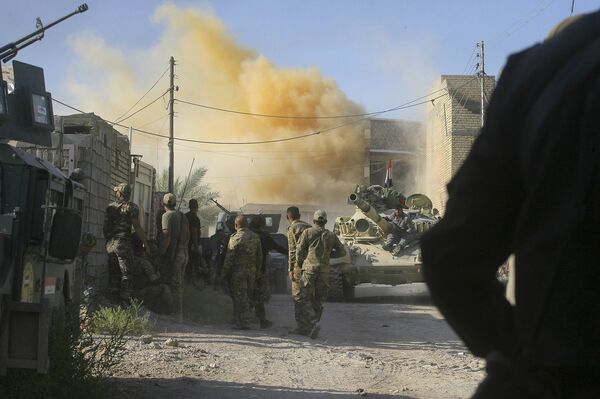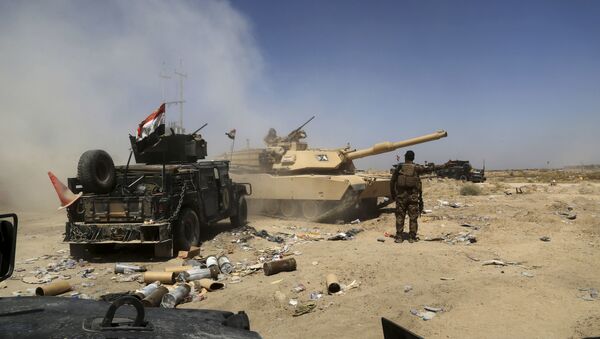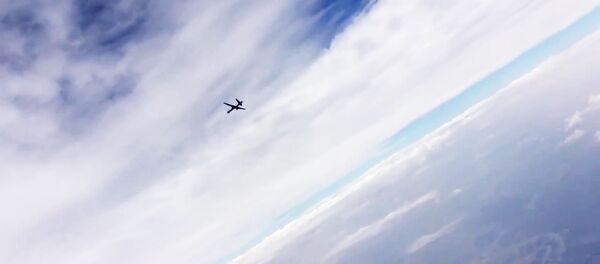Things are not going well for Daesh in Iraq and Syria. The group has recently lost the city of Fallujah. This victory will pave the way for more military operations against the militants, Iraqi Foreign Ministry spokesman Ahmad Jamal told the publication.
These campaigns "will primarily be aimed at freeing Mosul, the largest Iraqi city under Daesh control. The army has already carried out several operations in the north of Saladin Governorate. For instance, the [security forces] have pushed the terrorists out of the city of al-Shirqat and adjacent areas," he detailed.
The Saladin (or Salaheddin) province borders on Nineveh Governorate, whose capital is Mosul.

Ahmad Jamal could not provide the exact timeframe when Baghdad-led forces plan to take Iraq's second largest city under control, but it will not be as fast as the offensive on Fallujah. "We are talking about a city with large civilian population," he said.
Still the spokesperson expressed hope that Mosul, that has been under Daesh control since June 10, 2014, could be freed by the end of the year.
Daesh has struggled to maintain the grip on its once sprawling caliphate for months. The group is estimated to have lost some 45 percent of its territory in Iraq and 20 percent of its lands in Syria. Yet it remains a formidable force to be reckoned with.
The upcoming liberation of Mosul and Raqqa, the two most important cities for the group, will most likely deal a devastating blow to Daesh's empire. However, the operations will not put an end to the group itself, Glazunov asserted.
"The terrorists are powerful and are capable of pushing back. At the same time they understand that they will have to flee Iraq and Syria at some point. As a result, they are changing tactics and creating sleeper cells. Militants enter Europe as migrants. They live normal life, have families. Then they receive an order to carry out a terrorist attack," he detailed.
In other words "the extremists are transferring the warzone from the Middle East to European cities," he said.



